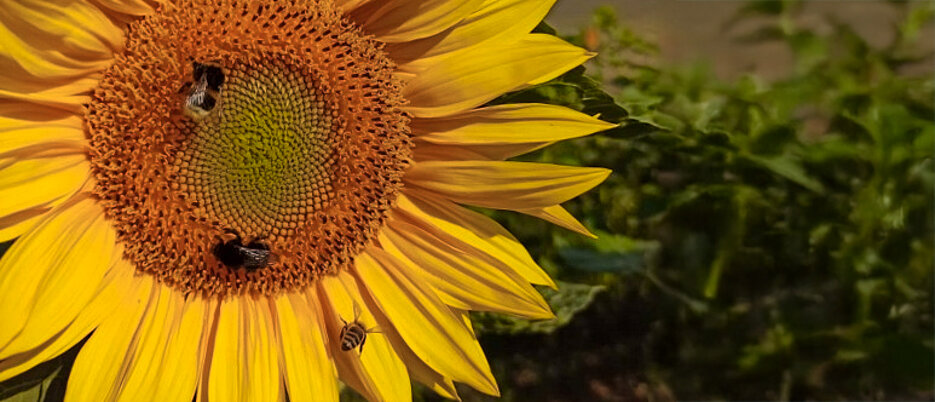
A recent study conducted by the University of Würzburg demonstrates that increasing biodiversity can enhance wild pollinator populations while simultaneously ensuring stable agricultural yields. This research challenges the common perception that these two goals are mutually exclusive. The findings, published in the Journal of Applied Ecology on September 14, 2025, highlight the importance of maintaining ecological balance in farming practices.
Researchers from the University of Würzburg, in collaboration with the Bavarian State Institute for Agriculture, examined 29 sunflower fields across northern Bavaria. Of these, 15 fields were farmed organically and 14 conventionally. Their objective was to investigate the factors influencing wild pollinator populations and their subsequent impact on sunflower yields. The study took into account the specific conditions of individual fields as well as the overall landscape structure surrounding them.
To assess the role of pollinators in sunflower cultivation, the team conducted a straightforward experiment. They protected some sunflower heads with fine nets to prevent pollinator access while leaving others open. The results were striking: sunflowers that were freely pollinated yielded approximately 25 percent more than those that were not, regardless of whether they were grown in organic or conventional settings.
The research revealed significant variations in the responses of different pollinator groups. As Denise Bertleff, the first author of the study and biologist at the Department of Animal Ecology, noted, “Bumblebees, for example, benefited from a high proportion of organically farmed fields.” The study found that increasing the amount of organic farming from 10 percent to 20 percent nearly doubled the bumblebee population in the surveyed areas.
In contrast, the population of solitary bees was primarily influenced by the availability of semi-natural habitats, such as hedgerows, calcareous grasslands, and orchards. “Our study shows that agriculture can be organized in a way that promotes biodiversity,” Bertleff emphasized. “A diverse landscape, for instance by deliberately leaving weeds standing, makes harvests more stable and safeguards biodiversity.”
The researchers compiled their findings into a series of actionable recommendations aimed at farmers, policymakers, and nature conservation advisors. The project, funded by the Federal Ministry of Food and Agriculture (BMEL), was established on the basis of a resolution passed by the German Bundestag. The Federal Office for Agriculture and Food (BLE) played a crucial role in organizing the research.
This study underscores the critical relationship between biodiversity and agricultural productivity. By fostering a diverse ecosystem, farmers can improve pollinator health, which in turn enhances crop yields. As the agricultural sector faces increasing pressures from climate change and habitat loss, such insights are vital for developing sustainable farming practices that benefit both the environment and food security.
In conclusion, the evidence presented by this research advocates for a reevaluation of current agricultural practices. By integrating biodiversity into farming strategies, it is possible to achieve a harmonious balance between ecological health and agricultural productivity.







